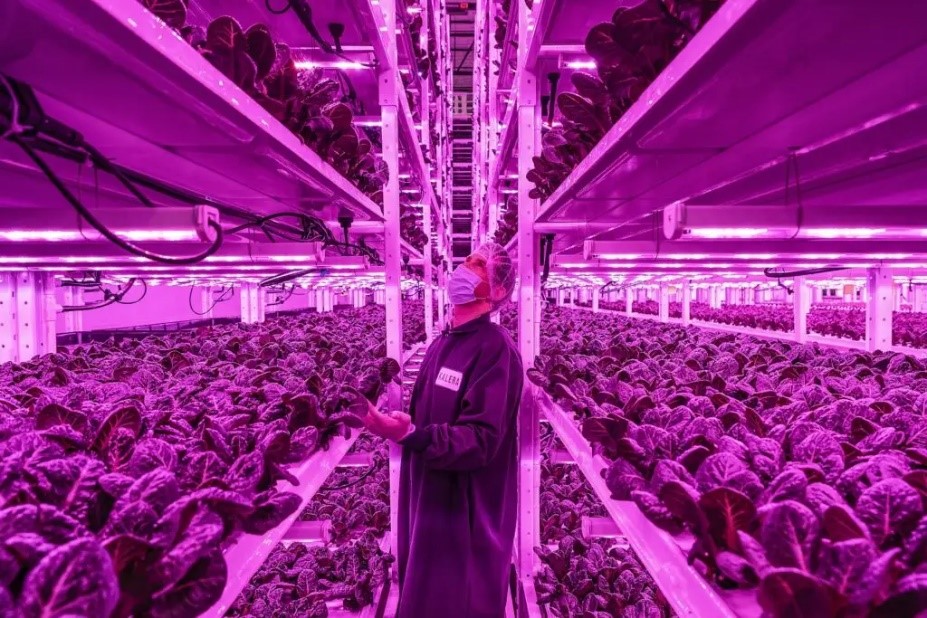
Can urban harvests be green?
- Urban farms emit 6x more greenhouse gases than conventional farms
- Despite drawbacks, they offer green spaces, community building, and fresh food
Food production plays a vital role in sustaining communities, but often comes at the cost of greenhouse gas emissions and biodiversity loss due to extensive land use.
 Photo: Teake Zuidema
Photo: Teake Zuidema
An international study has revealed that food produced through urban rooftop and vertical farms emits 6 times of the greenhouse gas emissions compared with conventional open-air farms. The study found that fruits and vegetables from urban farms in US and Europe produced 0.42kg of carbon dioxide equivalents per serving. To reduce emissions, the researchers suggested shifting to crops that are typically greenhouse-grown or air-freighted.
Aside from climate impacts, growing food in a concrete jungle comes at a cost. Finding suitable land in a densely populated area adds a layer of complexity, especially for larger farms. Urban farms can also strain local water resources.
Despite the drawbacks, urban farms provide green spaces that boost mental health, enhance community bonds of people involved and offer nutritional benefits. What then are the trade-offs that need to be made for food security?
Reducing dependence on food imports
Singapore brings in over 90% of its fresh produce from overseas. In view of the country’s ambition to produce 30% of its nutritional needs locally by 2030, there is no better time for developing and implementing innovations to future-proof our food system.
In 2020, 9 high-tech farms were awarded close to S$40 million to supercharge local food production. One example is Green Harvest which operates Southeast Asia’s largest hydroponics glass greenhouse, producing 4000kg of vegetables a day (0.3% of Singapore’s supply). The farm looks to minimise water use by tapping on rainwater harvesting and a closed-loop water system.
Seafood is seen as potentially beneficial for more sustainable diets. Increasing production using land-based recirculating systems enables farmers to rear fish at high densities while overcoming issues linked to open net-pen systems like transmission of disease. These versatile, compact farms allow fish to be grown in urban contexts. While they require high energy inputs, fish can be grown closer to markets – curbing emissions from air miles for food imports and raising domestic seafood supply.
Looking forward
In response to growing demand for food, how we balance production with the future of biodiversity is key. Researchers have found that high yield farming needs less land to create the same quantity of produce. Modern farming methods can be harnessed to meet growing demand for food, combined with mechanisms to limit agricultural expansion and habitat conversion. Rather than being conflicting goals, food security and sustainability are two sides of the same coin. We can create a future where urban farming nourishes both people and the planet by embracing innovation and recognising trade-offs. As part of PCM ESG Objective 2 (Mitigating Negative Externalities), our environmental analysis reinforces actions by firms to avoid negative impacts on biodiversity. For example, utilising technology to improve farming processes which can minimise carbon emissions, optimise water use, and avoid habitat destruction.
Important Information
This material is provided by Phillip Capital Management (S) Ltd (“PCM”) for general information only and does not constitute a recommendation, an offer to sell, or a solicitation of any offer to invest in any of the exchange-traded fund (“ETF”) or the unit trust (“Products”) mentioned herein. It does not have any regard to your specific investment objectives, financial situation and any of your particular needs.
The information provided herein may be obtained or compiled from public and/or third party sources that PCM has no reason to believe are unreliable. Any opinion or view herein is an expression of belief of the individual author or the indicated source (as applicable) only. PCM makes no representation or warranty that such information is accurate, complete, verified or should be relied upon as such. The information does not constitute, and should not be used as a substitute for tax, legal or investment advice.
The information herein are not for any person in any jurisdiction or country where such distribution or availability for use would contravene any applicable law or regulation or would subject PCM to any registration or licensing requirement in such jurisdiction or country. The Products is not offered to U.S. Persons. PhillipCapital Group of Companies, including PCM, their affiliates and/or their officers, directors and/or employees may own or have positions in the Products. This advertisement has not been reviewed by the Monetary Authority of Singapore.